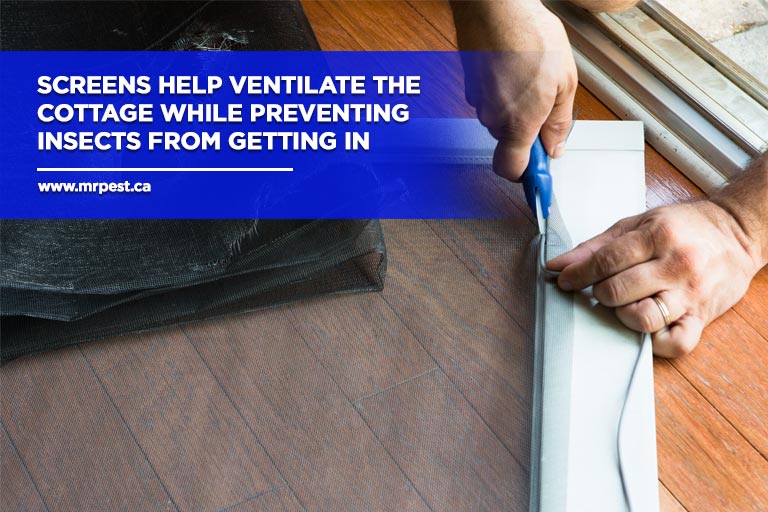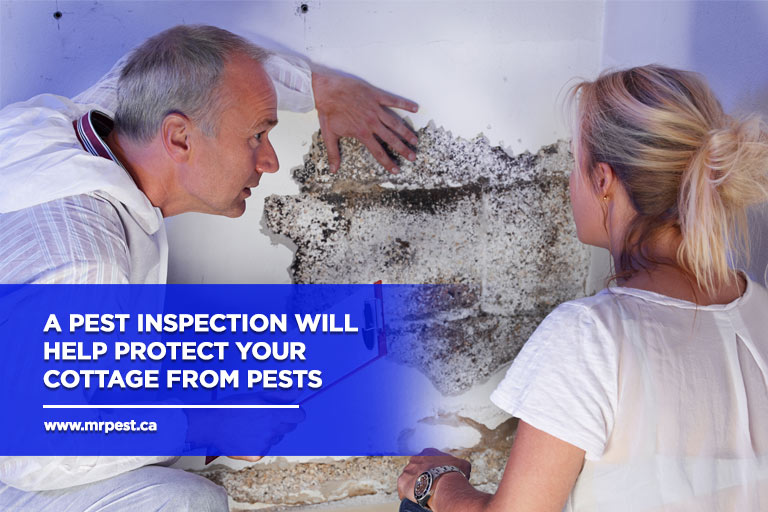Cottages, unlike other home designs, tend to be more prone to pest infestations. Due to its open design and use of natural building materials such as wood, brick, and stone, it can contain plenty of areas that can serve as breeding grounds for insects, critters, and vermin.
Once these pests invade your property, they can be quite difficult to get rid of by yourself. They can ultimately damage the structural integrity of your cottage. This is why it’s important, that as early as the start of the year, you should plan for preventive pest control.
It’s also important to remember that every season entails a different set of invasive species that may come your way. You should be equipped with the basic dos and don’ts of pest control to ensure that your cottage life is as best as it can be.
Preventive measures are the best way to keep your cottage pest-free, so you won’t reach the point of having to evict these critters from your cottage through forceful inhumane methods. Here are a few tips:
-
- Maintain and install window and door screens

Window and door screens are your first line of defence against pesky critter invasions. By installing them, you can keep out mosquitoes, moths, gnat flies, cockroaches, and other insects that may want to enjoy the warmth of your cottage.
These insects are especially more prevalent during the fall season, so you should conduct your inspection and installation during summer or spring. You can also use metal wire screens made of copper or bronze to keep out mice and rats from gnawing your window screens.
-
- Cover cracks and holes
Gaps and cracks in the cottage walls are the perfect entryways for pests. No matter how small the opening, mice and rats can squeeze into the tiniest spaces or gnaw on it to make it larger.
If you want to keep them out, make sure to seal up these access points right away. Chimneys should be covered with mesh to keep birds from going in during the cold winter months.
You can also conduct better mice and rat control by setting up traps near these possible openings that may serve as burrows and nests for them. Attics and roofs should also be inspected. Every nook and cranny must be carefully sealed up to prevent any infiltration.
-
- Declutter the perimeter
Pests thrive in clutter and debris. When there’s a place to hide, that’s where they’ll be, creating their burrows and nests. If you want to prevent them from being attracted to your property, make sure to scout the perimeter for any spots that may tempt them.
Keep your firewood pile well organized and sealed up to prevent them from crawling inside. Garbage and compost pits should also be placed at least 20 feet away from your house so you won’t encourage pests to come near and settle in.
Covering your trashcans, barrels, and boxes with proper lids will also help you prevent undertaking extreme raccoon and squirrel removal measures later on.
-
- Avoid bright light bulbs
Bright light bulbs may seem like the best way to spruce up your cottage. However, installing them on your lawn, with their artificial warmth and light, actually simulates the sun, making it a beacon for insects and pests to come near your cottage.
If you still want to have outdoor lighting fixtures, you should stick with compact LED ones, which also add less light pollution to the area.
-
- Maintain cottage cleanliness
You have organized the outdoor perimeter. You should include the indoors as well. Before the year starts or at least every month, you should conduct a deep general cleaning in your cottage.
Don’t hoard any unnecessary belonging that may only affect the order of your interior arrangement. Food particles after eating should be swept out and disposed of properly.
Foods and other edible items should be sealed and kept away from open spaces. Vacuuming daily can also prevent the accumulation of food particles and dust, keeping pests from being attracted to your cottage.
-
- Establish a barrier for insects
Creating a chemical and physical barrier for insects is vital for keeping your cottage pest-free. However, while you’re conducting this process, you have to make sure that you are not also harming yourself with any toxic insecticide chemicals.
When using bug-repellent sprays, make sure to check the label of ingredients first to ensure that you’re not allergic to any of them and it doesn’t harm your health. After the spray has taken effect, make sure to also sweep the dead insects that may accumulate.
-
- Take advantage of technology
Pest-repellent technology no longer relies on sprays and chemicals to keep off insects and critters at bay. With the use of ultrasonic devices that emit a noise frequency that cannot be heard by humans but is very unpleasant for pests, you can keep your cottage pest-free. You can plug them in on various house locations, and the best thing about them is that they utilize less electrical energy.
-
- Schedule a pest inspection

Conducting a cottage pest inspection every season is the best way to combat the presence of pests. To know which preventative measure you should be more focused on, you should determine first the most likely invaders in your area for that season. By inspecting your cottage for any present and future infestations, you can have a better idea of how to prevent or combat them.
Cottages are usually found in nearby wooded, rural areas, making the perfect sanctuaries for wildlife creatures to house themselves in your cottage. The challenge here is ensuring that you keep pests and wildlife at bay, while still respecting their natural habitat.
Conducting wildlife control still has to value the rights of the animals that you want to deal with, ensuring that you are engaging with them in the most humane way possible. You need professionals for this like the experts from Mr. Pest Control. We do environmental pest control for your cottage. Call us now at the following numbers:
-
- Barrie: (705) 739-7378
- Orillia: (705) 326-3377
- Midland & Area: (705) 739-7378
- Simcoe County: (705) 739-7378



